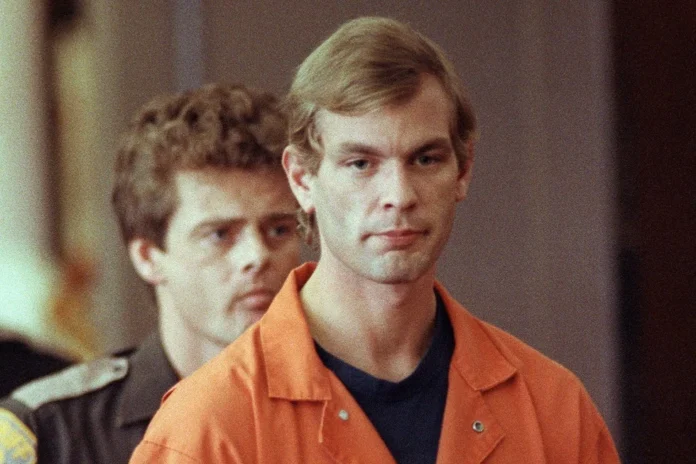David Dahmer might not be a name instantly recognizable to most, but he shares a connection with one of the most notorious serial killers in American history, Jeffrey Dahmer. Jeffrey Dahmer, known as the “Milwaukee Cannibal,” was responsible for the gruesome murders of 17 young men between 1978 and 1991. The Dahmer family, particularly David, lived in the shadows of this horrific legacy. However, the emphasis on Jeffrey has overshadowed the experience, trauma, and life of David, his younger brother.
Early Life of David Dahmer
David Dahmer, born in the early 1970s, is the younger brother of Jeffrey Dahmer. Their parents, Lionel and Joyce Dahmer divorced when David was young, creating a tumultuous family environment that was overshadowed by Jeffrey’s rising sinister proclivities. David changed his last name and opted for a life away from public scrutiny, understandably so, given the grotesque actions of his brother.
Impact of a Troubled Brother
Living as a sibling to a person who would go on to become one of America’s most infamous serial killers can be profoundly scarring and traumatizing. David had to navigate through life carrying the immense burden of his brother’s deeds. In the midst of the media frenzy and societal recoil stemming from his brother’s horrifying actions, David Dahmer retreated from the public eye, prioritizing his mental well-being and personal safety.
David’s life has been primarily shrouded in privacy. The scarce details available point towards a life marked by efforts to separate his identity from his brother’s monstrous legacy. His pursuit of normalcy is a stark contrast to the grim and morbid fascination that surrounds the name, Dahmer.
A Family’s Struggle
The Dahmer family struggled to cope with the horrifying realities of Jeffrey’s actions. Lionel Dahmer, the father of Jeffrey and David, penned a memoir titled “A Father’s Story,” which depicts his struggles, guilt, and attempts to comprehend the heinous crimes of his son, providing a unique yet heart-wrenching perspective on the familial impacts of having a serial killer in the family.
The family became the subject of societal scrutiny, and their every action was observed and analyzed. This kind of pressure can be impossible, pushing individuals like David Dahmer into the shadows, avoiding the prying eyes of a curious public and the stigma attached to the Dahmer name.
Seeking Normalcy
David’s quest for an everyday life, away from the relentless scrutiny and morbid curiosity, is the most poignant part of his story. He changed his name, undoubtedly to disconnect from the infamy attached to ‘Dahmer’ and to protect himself from potential harm and unwarranted attention. David’s life represents a relentless endeavor to assert his individuality, distinct from the gruesome legacy of his brother.
A Perspective on Privacy
David Dahmer’s choice to live a life of anonymity is a powerful testament to the human need for privacy and autonomy, especially when connected to traumatizing and stigmatizing circumstances. His decision to distance himself from his brother’s name is more than understandable. It speaks to his desire to define himself independently of his brother’s appalling actions.
Societal and Psychological Implications
David Dahmer’s story brings to light the societal and psychological ramifications of being related to someone who has committed reprehensible crimes. The isolation, stigma, and continuous psychological torment experienced by such individuals are profound. It begs the question of how society treats the families of criminals. This issue is often overlooked in the face of the larger, more sensational narratives surrounding the criminals themselves.
David’s struggle is symbolic of the broader implications on the families of notorious criminals, raising ethical questions about privacy, empathy, and the societal responsibility to differentiate between the actions of an individual and the innocence of their family.
Media Representation and the Dahmer Name
The media’s representation of the Dahmer family, particularly Jeffrey Dahmer, has been characterized by sensationalism, focusing primarily on the macabre details of his crimes. The popularity of true-crime documentaries, podcasts, and movies continues to bring the Dahmer name back into public discourse, often overshadowing the human aspect and the collateral damage inflicted on family members like David.
The exploitation of Jeffrey Dahmer’s crimes for commercial gain continues to perpetuate the pain and suffering of his family, reinforcing the need for a more balanced and empathetic approach to actual crime storytelling, one that is considerate of the lingering pain experienced by the family members.
Conclusion: Reflecting on David Dahmer’s Story
David Dahmer represents a side of true crime that is rarely explored – the perspective of the family members left to grapple with the dark legacy of their relatives. His struggle for normalcy, privacy, and autonomy in the face of constant public scrutiny and stigma serves as a reminder of the human cost associated with infamous crimes.
David’s life story poses crucial questions about societal empathy, the media’s responsibility in true-crime representation, and the enduring impacts on the families of criminals. It is a stark reminder to approach the genre with sensitivity and awareness, respecting the lives of those who are unwillingly entangled in these grim narratives.
In an era obsessed with true crime, the story of David Dahmer asks us to reflect on our role as consumers of such content. It challenges us to engage with these narratives with empathy and respect for the human beings affected by them.
Ultimately, the David Dahmer narrative serves as a symbol of resilience and a quest for self-definition, illuminating the shadows with a human story of struggle and redemption in the face of overwhelming darkness. The unspoken pain, enduring strength, and pursuit of the normalcy of David Dahmer make his story a crucial part of understanding the broader implications of criminal actions on families, urging us to foster a culture of compassion, respect, and understanding for those who bear the unchosen burden of a dark legacy.
- You may also read

